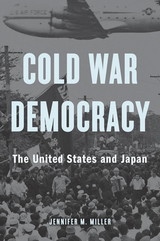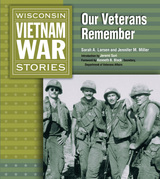
A fresh reappraisal of Japan’s relationship with the United States, which reveals how the Cold War shaped Japan and transformed America’s understanding of what it takes to establish a postwar democracy.
Is American foreign policy a reflection of a desire to promote democracy, or is it motivated by America’s economic interests and imperial dreams? Jennifer Miller argues that democratic ideals were indeed crucial in the early days of the U.S.–Japanese relationship, but not in the way most defenders claim. American leaders believed that building a peaceful, stable, and democratic Japan after a devastating war required much more than elections or a new constitution. Instead, they saw democracy as a psychological and even spiritual “state of mind,” a vigilant society perpetually mobilized against the false promises of fascist and communist anti-democratic forces. These ideas inspired an unprecedented crusade to help the Japanese achieve the individualistic and rational qualities deemed necessary for democracy.
These American ambitions confronted vigorous Japanese resistance. Activists mobilized against U.S. policy, surrounding U.S. military bases and staging protests to argue that a true democracy must be accountable to the Japanese people. In the face of these protests, leaders from both the United States and Japan maintained their commitment to building a psychologically “healthy” democracy. During the occupation, American policymakers identified elections and education as the wellsprings of a new consciousness, but as the extent of Japan’s remarkable economic recovery became clear, they increasingly placed prosperity at the core of a revised vision for their new ally’s future. Cold War Democracy reveals how these ideas and conflicts informed American policies, including the decision to rebuild the Japanese military and distribute U.S. economic assistance and development throughout Asia.


READERS
Browse our collection.
PUBLISHERS
See BiblioVault's publisher services.
STUDENT SERVICES
Files for college accessibility offices.
UChicago Accessibility Resources
home | accessibility | search | about | contact us
BiblioVault ® 2001 - 2024
The University of Chicago Press









